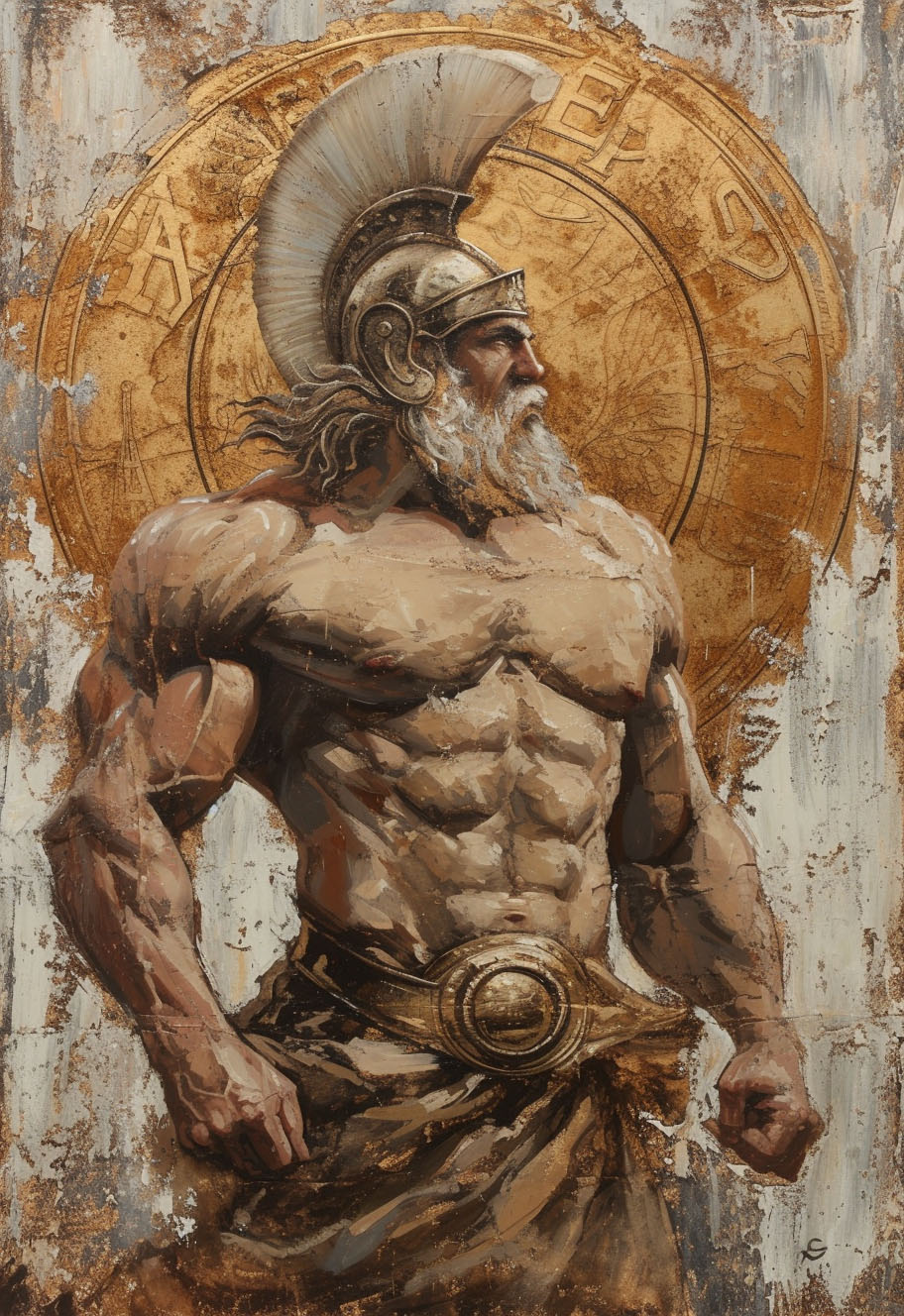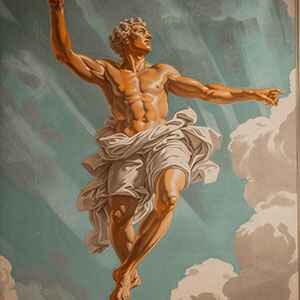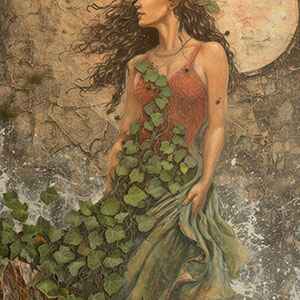
Parentage and Generation: Coeus is one of the twelve Titans, born from Uranus (the sky) and Gaea (the Earth). He is a sibling to other Titans, including Cronus, Rhea, Oceanus, and Tethys.
Consort and Offspring: Coeus is often mentioned as the husband of his sister Phoebe, another Titan. Together, they are the parents of Leto, who in turn, becomes the mother of Artemis and Apollo.
Attributes: Coeus is often associated with intellect and inquisitive thinking. His name, in Greek, can be translated as "query" or "questioning."
Mythological Role: While Coeus is not as prominently featured in myths as some other Titans, he plays a role in the genealogy of the gods. His descendants, including Leto, contribute to the Olympian pantheon.
Titanomachy: During the Titanomachy, the war between the Titans and the Olympians, Coeus and most Titans sided with Cronus against Zeus and the other Olympian gods. Following the Titans' defeat, they were banished to Tartarus, a deep abyss in the underworld.
Post-Titanomachy Fate: The fate of Coeus after the Titanomachy is not always explicitly mentioned in surviving myths. However, like other Titans, he is generally considered to have been imprisoned in Tartarus.
Cultural and Literary References: Coeus is mentioned in Hesiod's "Theogony," where the poet provides a genealogy of the gods. The Titans, including Coeus, represent the generation that precedes the Olympians.
Symbolic Significance: Coeus, along with other Titans, embodies primordial forces and aspects of the natural world. His association with intelligence and questioning may symbolize the intellectual and cosmic processes at play in the early stages of the cosmos.
Lesser Known Figure: Compared to some other Titans like Cronus or Atlas, Coeus is a less prominent figure in Greek mythology. As a result, specific myths or stories centered around him are not as widely known.
Coeus, like the other Titans, contributes to the larger narrative of Greek cosmogony and the transition from the reign of the Titans to the dominance of the Olympian gods. While not a central figure in many myths, Coeus is part of the rich tapestry of characters that define Greek mythology.
Immediate Family
Quick Facts
- Coeus is one of the twelve Titans.
- He is born from Uranus and Gaea.
- Coeus is associated with intellect and inquisitive thinking.
- He is the husband of Phoebe and the father of Leto.
- Coeus sided with Cronus in the Titanomachy.
- Following the Titanomachy, Coeus is generally considered to have been imprisoned in Tartarus.
- He is mentioned in Hesiod's "Theogony."
- Coeus symbolizes primordial forces and intellectual processes.
- Compared to some other Titans, Coeus is a less prominent figure in Greek mythology.
Further Reading
Art &
Architecture
Ancient Greek art and architecture, with its harmonious proportions and timeless elegance, continue to inspire awe and admiration millennia later.
Discover
Greek Mythology & Mythical Characters
Greek mythology, a rich tapestry of gods, heroes, and mythical creatures, captivates the imagination with its tales of love, betrayal, and epic adventures that delve into the depths of the human psyche.
Discover
Ancient Greek History
Ancient Greek history, marked by remarkable achievements in democracy, philosophy, and warfare, shaped the foundation of Western civilization, leaving an indelible legacy of innovation and cultural influence that continues to resonate to this day.
Discover
Ancient Greek Olympics
The ancient Greek Olympics, held in Olympia every four years, celebrated athleticism, unity, and cultural pride, serving as a testament to the enduring spirit of competition and excellence that transcends time and borders.
Discover
Ancient Greek Wars
Ancient Greek wars, such as the Persian Wars and the Peloponnesian War, were pivotal conflicts that shaped the course of history, highlighting the struggle for power, independence, and the clash of civilizations in the ancient Mediterranean world.
Discover
Ancient Greek Culture and Society
Ancient Greek culture and society, characterized by its emphasis on art, philosophy, and civic engagement, fostered a vibrant intellectual and social landscape where innovation flourished, democracy thrived, and the pursuit of knowledge and excellence was celebrated as fundamental values of civilized life.
Discover

